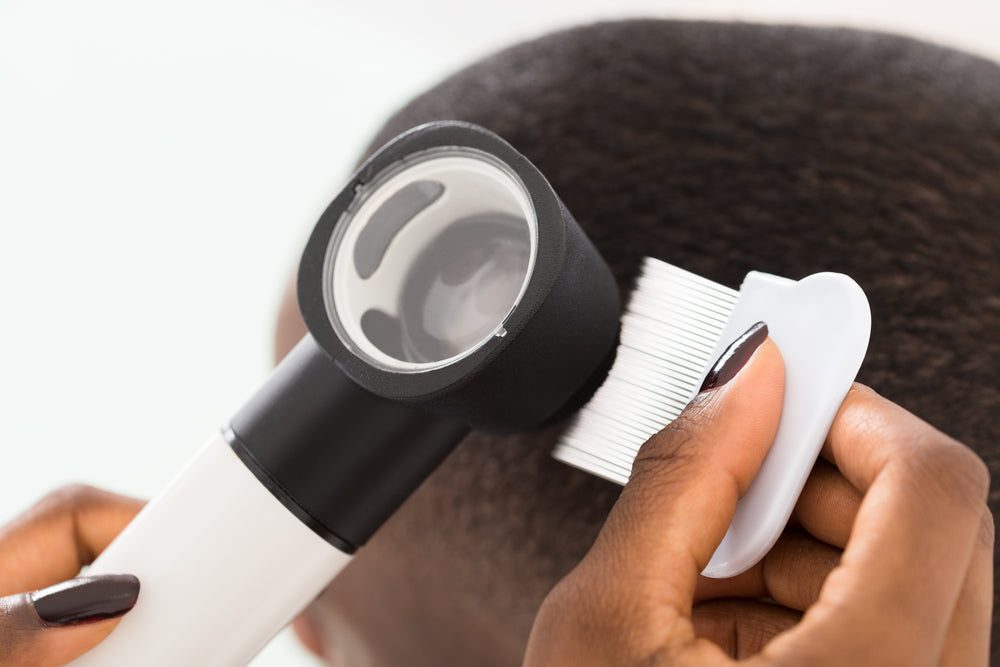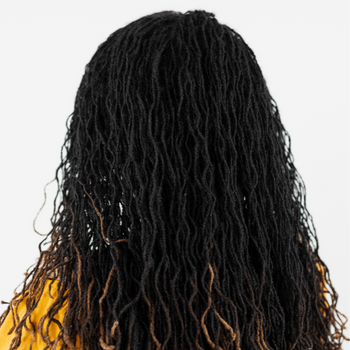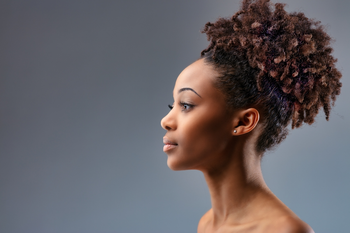

Hair loss affects both your appearance and confidence. When facing this challenge, choosing the right specialist is crucial for recovery. Dermatologists are medical doctors with extensive training who can prescribe medications and treat various skin conditions, including hair issues. Trichologists are hair and scalp specialists who focus solely on hair-related concerns. They use holistic approaches to treat alopecia areata, Traction Alopecia, and Telogen effluvium.
Their method of treatment also differs. Dermatologists may recommend surgical solutions, while trichologists favor natural treatments like scalp massages and dietary changes. Choose based on your specific hair concerns for the best results.
Table of Contents
Trichologist vs Dermatologist: Key Differences in Training and Role
Becoming a hair health expert follows two distinct journeys—each with unique qualifications, capabilities, and practice environments. Knowing these differences helps you select the perfect specialist for your crown's needs.
Medical Background: Dermatologist MD vs Trichologist Certification
Dermatologists follow a lengthy medical path—approximately 13 years of intense education, including medical school, core training, and specialized dermatology studies. This journey establishes them as recognized physicians with the authority to diagnose and treat conditions affecting the skin, scalp, and hair strands.
Trichologists pursue a different path, completing certification programs spanning 12 weeks to 4 years. These specialized courses focus exclusively on hair and scalp science—your tresses' specific needs, rather than broader medical topics. Many programs welcome cosmetology or barbering backgrounds, creating specialists who understand your hair from scientific and styling perspectives.
Scope of Practice: Prescriptions vs Holistic Advice
Your options expand dramatically between these professionals. Dermatologists offer medical solutions—they prescribe oral and topical medications, perform surgical procedures like hair transplants, and administer treatments such as platelet-rich plasma therapy. Their medical training allows for specialized diagnostic tools, including scalp biopsies and trichoscopy, to identify the root cause of your hair concerns.
Trichologists embrace your hair health through holistic perspectives. They shine when recommending lifestyle adjustments, nutritional guidance, and customized hair care regimens tailored to your needs. While some may suggest topical treatments, their inability to prescribe medications or perform medical procedures means certain conditions require additional care beyond their expertise.
Work Settings: Clinics vs Salons and Scalp Centers
You'll find dermatologists within medical environments—clinics and hospitals operating within traditional healthcare systems. They typically accept insurance coverage and may require referrals from your primary care physician.
Trichologists welcome you in diverse settings from specialized scalp clinics to salons and medspas. Their focus celebrates your hair's beauty and health rather than treating severe medical conditions. Some forward-thinking practices now offer blended care models where dermatologists and trichologists collaborate, delivering complete care that addresses medical needs and aesthetic desires for your crown's optimal health.
Hair & Scalp Conditions: Which Expert Treats What?
Hair troubles speak differently to each specialist. Both trichologists and dermatologists address scalp issues, but their approaches reflect their unique training paths. Knowing which expert handles your specific condition saves precious time in your hair restoration journey.
Pattern Hair Loss & Temporary Shedding
Androgenetic alopecia affects approximately 80% of men and half of women by age 70. This condition gradually shrinks your hair follicles, demanding medical attention. Dermatologists typically offer FDA-approved solutions like minoxidil and finasteride, while trichologists create holistic regimens tailored to your unique hair story.
Telogen effluvium—temporary shedding triggered by stress, pregnancy, or nutritional gaps—accounts for about 15.4% of hair consultations. During this phase, nearly 30% of your follicles enter rest mode simultaneously. Trichologists shine here, crafting lifestyle adjustments and nutritional guidance that address the root cause of your shedding.
Flaky, Irritated Scalp Concerns
Seborrheic dermatitis affects 11% of people, creating yellowish, greasy scales with redness in oil-rich areas. Dermatologists combat this with prescribed antifungals and corticosteroids. Trichologists offer specialized exfoliation treatments, though stubborn cases ultimately need a dermatologist's medical approach.
Due to its autoimmune nature, psoriasis demands dermatological expertise. The tricky overlap between seborrheic dermatitis and psoriasis—called sebopsoriasis—requires a dermatologist's diagnostic skills to determine proper treatment paths.
Fungal & Autoimmune Hair Challenges
Fungal infections like Tinea capitis create circular patches of hair loss with scaling. These infections respond best to oral antifungal medications, placing them firmly in dermatological territory. Still, trichologists often spot these conditions first, directing you to appropriate medical care.
Alopecia areata represents 19.3% of hair-related visits, stemming from your body attacking its hair follicles. Dermatologists confirm this through scalp biopsies and blood tests. Trichologists offer non-prescription treatments for mild, non-scarring cases that optimize scalp health while supporting your hair's natural growth cycle.
Treatment Approaches: Medical vs Holistic Care
Your hair loss journey demands different paths to healing, reflecting the unique philosophies behind dermatology and trichology practices.
Diagnostic Tools: Biopsy and Blood Tests vs Microscopic Hair Analysis
Dermatologists unveil hair loss causes through medical procedures trusted by healthcare authorities. Blood work reveals hidden imbalances—hormonal shifts, nutrient gaps, or thyroid troubles—that silently steal your strands. Scalp biopsies tell deeper stories, where tiny tissue samples (typically 4mm in diameter, creating a sample of approximately 12.6 mm²) examined under microscopes, confirm conditions like cicatricial alopecia with medical certainty.
Trichologists explore your hair story through gentler means. Their microscopic analysis examines each strand's structure and your scalp's condition without cutting or testing. While these methods beautifully identify structural hair issues, they can't match medical diagnostics for precision. Forward-thinking practices now embrace tele-trichoscopy, remotely monitoring conditions like alopecia areata while maintaining accuracy between virtual and in-person assessments.
Treatment Methods: Steroids and Medications vs Nutrition and Scalp Massage
Dermatological approaches center on robust FDA-approved solutions. Minoxidil fights thinning while stimulating fresh growth for various conditions, including pattern hair loss and stress-related shedding. Men with balding patterns receive oral finasteride to block harmful hormones, while women benefit from specialized antiandrogens like spironolactone. When your immune system attacks hair follicles, corticosteroids—applied directly, injected, or taken orally—calm the internal storm.
Trichologists nurture hair through whole-body wellness. Their nutritional guidance ensures your body receives vital hair-building blocks—vitamins A, B, C, D, and E—alongside minerals like zinc and iron that feed follicles from within. Specialized scalp massage techniques awaken sleeping follicles, with research showing significant regrowth among those receiving regular scalp stimulation.
Your Hair Specialist Comparison Guide
Choosing between a trichologist and a dermatologist starts with understanding their key differences. This simple guide highlights what sets these hair care professionals apart and helps you select your perfect match.
| What to Compare | Trichologist | Dermatologist |
| Education Journey | 12 weeks to 4 years certification programs | ~13 years (including medical school, core medical training, and specialization) |
| Medical Powers | Cannot prescribe medications | Licensed medical doctors who can prescribe medications |
| Where You'll Find Them | Salons, specialized scalp clinics, medspas | Medical clinics, hospitals |
| How They Examine Your Hair | -Microscopic hair analysis -Nutritional counseling -Scalp message -Hair care regimens |
-Blood tests -Scalp biopsies -Trichoscopy -Clinical examinations |
| Treatment Philosophy | -Holistic care -Nutritional counseling -Lifestyle modifications -Scalp massage -Hair care regimens |
-Prescription medications -Surgical procedures -Hair transplants -Platelet-rich plasma therapy -Corticosteroid treatments |
| What They Focus On | 100% cases related to hair and scalp conditions | Broader focus on skin, hair, and scalp conditions |
| Payment Matters | Generally not covered by insurance | Often accepts insurance |
| Best For Your Hair When | -Early hair thinning -Texture changes -Telogen effluvium -Lifestyle-related issues |
-Severe hair loss -Scalp infections -Autoimmune conditions -Complex medial cases |
Conclusion
Your hair journey deserves expert guidance. Choosing between a trichologist and a dermatologist shapes your treatment path.
Dermatologists provide medical expertise through prescriptions, surgeries, and diagnostic tools like biopsies and blood work. Their medical training helps treat complex conditions requiring pharmaceutical intervention.
Trichologists focus specifically on hair health through holistic approaches—nutrition advice, scalp care, and personalized regimens. They excel at addressing early hair concerns naturally.
Some conditions, like alopecia, benefit from both specialists working together—dermatologists handle medical treatment while trichologists maintain daily hair health.
Choose your expert wisely and act quickly for optimal results. Your hair health reflects your overall well-being.
Frequently Asked Questions
What is the main difference between a trichologist and a dermatologist?
The main difference lies in their training and scope of practice. Dermatologists are medical doctors who can prescribe medications and perform surgical procedures, while trichologists specialize in non-medical, holistic approaches to hair and scalp health.
When should I see a trichologist instead of a dermatologist?
Consider seeing a trichologist for mild hair thinning, texture changes, or stress-related shedding. They're ideal for early-stage concerns that may benefit from lifestyle modifications and non-invasive treatments.
Can trichologists prescribe medication for hair loss?
No, trichologists cannot prescribe medications. They focus on holistic treatments, nutritional advice, and specialized hair care regimens. For prescription medications, you'll need to consult a dermatologist.
How do diagnostic methods differ between trichologists and dermatologists?
Dermatologists use medical diagnostic tools like blood tests and scalp biopsies. Trichologists primarily rely on non-invasive techniques such as microscopic hair analysis and visual examinations of the scalp and hair.
Is it beneficial to see both a trichologist and a dermatologist for hair loss?
Yes, in some cases, a collaborative approach can be beneficial. Dermatologists can handle medical diagnoses and prescriptions, while trichologists can provide complementary treatments and ongoing maintenance for optimal hair health.




